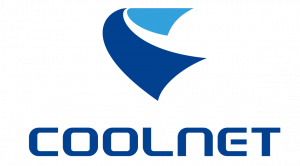At Coolnet, we closely track global regulatory shifts, and one area gaining momentum is EU energy regulations for developing countries—changes that will directly impact data center operations. As operators in these regions expand, the demand for precision air conditioning for server rooms and modular data center cooling solutions will grow, and new rules could reshape how these systems are designed and deployed. Let’s explore what to expect in the next 3-5 years.
Tighter Efficiency Standards for Cooling Systems
We anticipate the EU will push for harmonized efficiency benchmarks, extending beyond its borders to developing countries through trade agreements and funding ties. For precision air conditioning for server rooms, this could mean stricter limits on energy consumption and mandatory use of advanced technologies like variable-speed compressors or free cooling. Our CyberMaster Series PAC, which already uses intelligent EC fans to save 30% energy, aligns with this direction. These standards will likely require modular data center cooling solutions to meet minimum efficiency ratios, encouraging operators to move away from legacy systems toward scalable, energy-efficient designs—exactly what our modular data center cooling offerings are built for.
Mandates for Transparency and Reporting
Another trend we foresee is increased requirements for energy use reporting. Developing countries partnering with the EU may need to track and disclose data center cooling efficiency, including metrics specific to precision air conditioning for server rooms. This transparency will drive demand for integrated monitoring systems, like the DCIM platform in our MetaRow-Modular Data Center, which provides real-time energy data. Modular data center cooling, with its pre-integrated sensors and centralized management, will simplify compliance by making it easier to collect and report these metrics accurately.
Incentives for Sustainable Cooling Innovations
To balance stricter rules, the EU may offer incentives for adopting sustainable cooling technologies in developing countries. This could include funding for modular data center cooling that uses natural refrigerants or free cooling modes, such as our CMF Series fluorine pump PAC, which reduces energy use by 30-60% through hybrid cooling. Precision air conditioning for server rooms that integrates renewable energy sources, like solar-powered fans, might also qualify for support. Coolnet’s focus on combining efficiency with flexibility positions our solutions well to leverage these incentives, helping operators in developing countries meet regulations while controlling costs.
Conclusion
Over the next 3-5 years, EU energy regulations for developing countries will likely tighten efficiency standards, demand greater transparency, and reward sustainable innovations—all of which will shape the adoption of precision air conditioning for server rooms and modular data center cooling. At Coolnet, we’re prepared to support these changes: our precision air conditioning for server rooms meets emerging efficiency benchmarks, and our modular data center cooling solutions simplify compliance through integrated monitoring and scalable design. By aligning our products with these evolving regulations, we aim to help global data center operators in developing countries navigate the shifting landscape—ensuring they stay compliant, efficient, and ready for the future.









